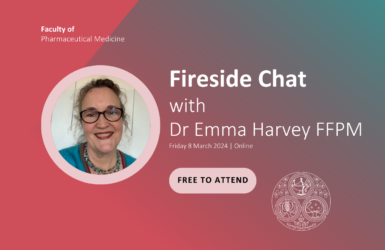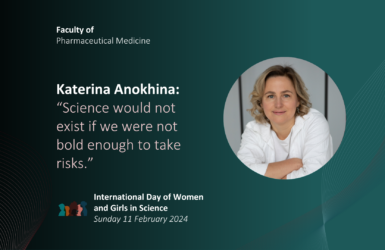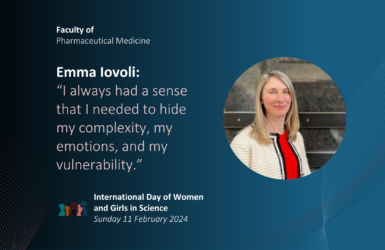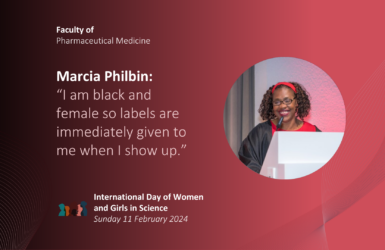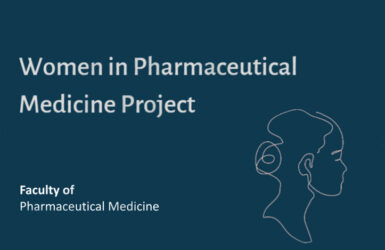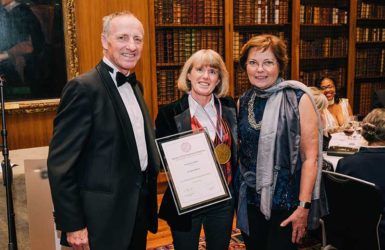Q&A with Freda Lewis-Hall
Posted on: Saturday 10 February 2024
About Freda
Dr Lewis-Hall was awarded Honorary Fellowship of FPM in 2017 and is a distinguished figure in medicine and leadership, having served in various pivotal roles within academia, medical research, and global biopharmaceutical companies such as Pfizer, Vertex, Bristol-Myers Squibb, and Eli Lilly. Trained as a psychiatrist, her career spans over 40 years, marked by significant contributions to patient care, research, and advocacy for health equity. As the former Executive Vice President and Chief Medical Officer at Pfizer, Dr Lewis-Hall spearheaded initiatives to enhance patient engagement, improve healthcare outcomes, and ensure the safe and effective use of medicines and vaccines. She continues to be a prominent voice in healthcare, sharing her inspiring journey and expertise.
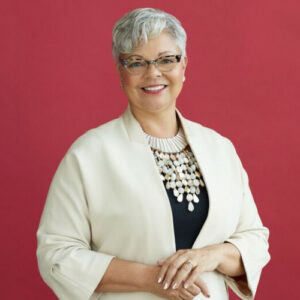
What inspired or motivated you to pursue a career in science?
I have wanted to be a physician since I was 6 years old. I was inspired by the team that cared for my uncle who was paralyzed by polio when he was a boy. He came to live with us when I was born, and I was mesmerized by the care and caring that he received from our family physician, surgeons, physical therapists, bracemakers, nurses and many more. Seeing so many ways to combine deep humanity and cutting edge science and my mind and heart were set!
What message would you like to convey to women and girls aspiring to make their mark in the field of science?
My father, a driver by profession, always urged me to “know where you or going….because any old road won’t get you there!” So ask yourself ,“What mark? ,Where? On Whom”. Admittedly, I am giving this advice in hindsight. I had no idea early in my training or career what I wanted to do in the long run with all of the knowledge and training I was gaining, I was taking it one step at a time. But, a mentor, at one point when I was considering a “next step”, walked me through a process that helped me identify and commit to some longer-term goals. He had me research about and talk to people whose achievements fascinated me. He encouraged me to learn about different ways to contribute: teacher, researcher, clinician, administrator and others! It was a difficult process. And I still wasn’t quite sure, but it helped me understand what skills, experiences and leadership behaviors I would need in my future and helped me clarify what mark I wanted to make.
How have you navigated and overcome gender-related challenges in your journey?
As a young African-American girl with an aspiration to become a physician, I have faced many challenges. Yes, the counselor suggested because I was lovely and well mannered, I should seek to marry well instead of a placement in a pre-med program. And yes, the professor suggested after class help for me would be a waste because “us people” didn’t do better than “C” work. And yes, during my training, patients asked that the female students be replaced by males. And, yes, many other examples of gender being a blatant bias or sometimes worse, an inconspicuous or unconscious one.
So how to overcome?
Know your believers- my parents and family were believers from day one. They believed I could fly and worked to give me wings. There were teachers, neighbors and friends that helped me understand what barriers I would face and how to overcome them. Know who they are, and lean on them. You do not have to do this alone.
Know yourself- I believe in authenticity. Be myself, always. But it took a lot of time and mentorship to learn the many dimensions of me. I speak many “languages”, my voice has many tones, I have become a good listener, I understand the value of the “right time”. Knowing me, in all my dimensions has allowed me to bring the best me into the room.
What changes or advancements do you hope to see for women in science over the next decade, and how can we collectively work towards achieving these goals?
As with all efforts of change it takes much and many! But, I believe over the last decades we have created the important case for change and have provided critical evidence and insights for the value of this change to the individual and society. I also believe we have developed tools and networks that have demonstrated how to create this change! So, I believe the opportunity now is how will we scale. And how the programs and platforms we need today to accomplish our work, become “business as usual”. How will we establish shared and specific goals and metrics for progress in attracting, educating, hiring, developing and advancing girls and women in science? And, how will we take the programs, partnerships, networks, knowledge and tools to every girl and woman who aspire to a career in science. I believe the key to this scale will be collaborating, but not just collaborating, a meta-collaboration, all hands on deck collaborating, connecting those who are interested and expert in this area so that we can use what we already know and have developed to expand our reach and amplify our impact.
On this special day, we want to celebrate your achievements. Can you share a project or accomplishment that you are particularly proud of during your career in science?
When I was a little girl, my mother would send me off each morning with the instruction,” each day seek to do obituary worthy work!” I not sure if I truly understood then and I must admit that when I started my career I dreamed of making a shapeshifting breakthrough or finding a cure for a deadly disease. But, I have found my mother’s advice to be true now that I understand it.
I am proud of the moments when I see the results of my commitment. I smile when a person tells me that through community outreach and education I have taught them an important lesson that improves their health. I am thrilled when a student I have taught or mentored tells me I have influenced them in an important way. I am fulfilled when the undiagnosed patient, is now diagnosed and treated. I have worked in the pharmaceutical industry for many years, and I find it rewarding in many ways. Recently, I have been working on establishing and supporting companies that are focused on identifying medicines in areas of high unmet need that are not being actively developed and moving those medicines into development and on to patients. One such company recently received regulatory approval. I am grateful that my work gives me an opportunity to serve others in so many ways.

